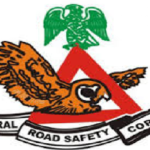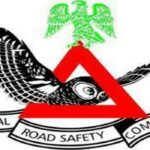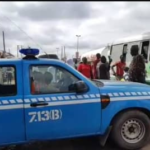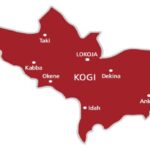On Sunday, September 8, 2024, tragedy struck in Niger State as 50 people and many animals were burnt to death in a road accident involving a petrol tanker, a passenger car and another truck conveying humans and animals. The accident, which occurred on the busy Agaie-Bida road near Man-Woro village, exposed the poor state of our roads, the recklessness of our drivers, the carelessness of passengers and the shortcomings of agencies charged with maintaining safety on our roads.
A witness, Abubakar Agaie, told this newspaper that 45 corpses, mostly burnt beyond recognition, were recovered from the scene. Another witness said that the accident occurred when the tanker fell while trying to meander through the deplorable road and caught fire before two other vehicles were also engulfed in the fire.
Speaking on the accident, the Corps Marshal of the Federal Road Safety Corps (FRSC), Shehu Mohammed, said the crash was a result of speed violation and called on the motoring public to join the commission in its campaign against night travel.
This is one accident too many as it has now become routine to hear stories of accidents across the country resulting in fatalities. Largely, the cause of the majority of these accidents are the fault of drivers.
- Maiduguri flood: Dantata donates N1.5bn, NEDC N3bn to victims
- LP crisis: Nenadi Usman remains PDP member – Abure
Indeed, the annual statistics from the FRSC show that the greater percentage of accidents on our roads are due largely to dangerous driving, including over-speeding and illegal overtaking. These are made worse by the deplorable state of our roads and the penchant of driving in the night.
While it is true that the FRSC has been campaigning against night travel due to the dangers associated with it, road users have continued the practice without let because road safety officers do not operate in the night; leaving the roads vulnerable to traffic violations.
This is made worse by the bad state of our roads which have now become death traps. The Bida-Agaie road is only one of many that are in deplorable condition in the country. From Port Harcourt to Sokoto, the story is the same about deplorable roads which have not seen any maintenance for years. With the current heavy rainfall across the country, the situation is better imagined.
The few roads that are in good shape are often congested with traffic to make passing through them stressful.
Unfortunately, rather than putting our existing roads in good shape, the government at both state and federal levels are embarking on the construction of new ones. While we believe it is good to open up the country through the construction of new roads, which will ease the movement of people and goods, and by extension help in economic development, we must prioritise the maintenance of the existing ones.
Daily Trust, therefore, calls on the federal and state governments to give more priority to maintenance of our roads. This is very pertinent at this time when government resources are overstretched.
To change this ugly narrative that leads to the death of many road users, sometimes in avoidable circumstances, there is the need to have a comprehensive review of the mandate of the FRSC to allow for the presence of officers on critical roads beyond the normal working hours of the day. The Nigeria Customs Service (NCS), the Nigeria Police Force (NPF) and others are doing it. The FRSC should do the same even if it means recruiting more personnel.
The agencies working on our roads to ensure safety and free movement of goods and humans should also intensify their efforts at apprehending erring drivers who are putting their lives and those of other road users in danger. Officers working on our roads must also be firm in the discharge of their duties and avoid being compromised by erring drivers.
We also call on road users, especially passengers of commercial vehicles, to have special interest in the conduct of the drivers taking them to their destination. Good roads can also make drivers engage in speed unless they are put in check.
Travellers must also resist the temptation of travelling in dangerous circumstances in the name of saving money, as many of the victims of the Bida-Agaie road accident seemed to be doing before they ended up losing their lives. If the drivers are bad, the roads are worse.

 Join Daily Trust WhatsApp Community For Quick Access To News and Happenings Around You.
Join Daily Trust WhatsApp Community For Quick Access To News and Happenings Around You.


